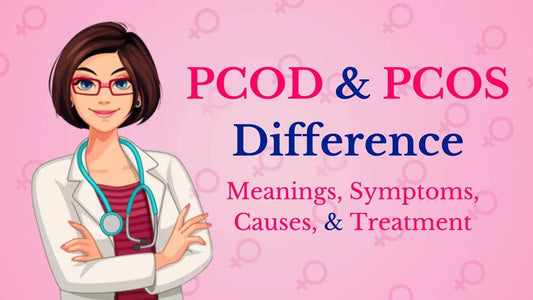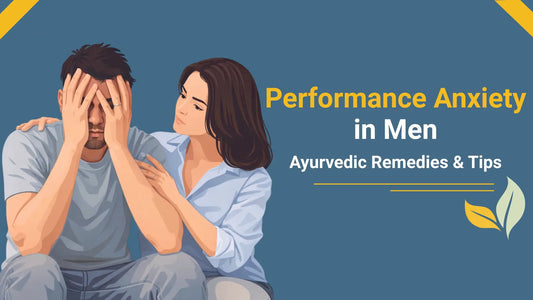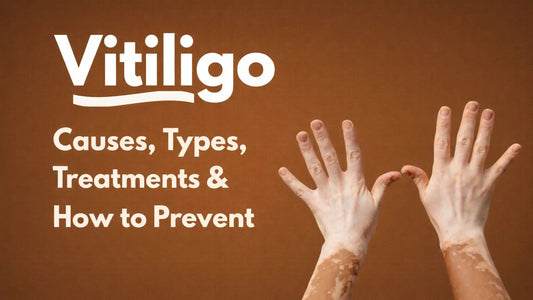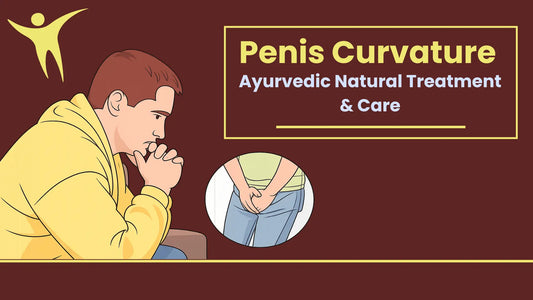
PCOS and PCOD: Meaning, Symptoms, Causes and More
That feeling of unwanted period cramps, acne, hirsutism, and infertility is something that not a single woman would want to experience. For the uninformed, PCOS and PCOD are nightmares for women, as they hinder a woman’s pregnancy and cause lots of trouble for her.
As both PCOS and PCOD are quite popular, most women often confuse the primal difference between PCOS and PCOD. However, this blog is specially crafted for those who are confused between these two terms, and this blog further explains the symptoms and causes of PCOS and PCOD.
What is PCOS?
Well, PCOS is kind of tricky to understand; don’t worry, we will be going through the meaning of PCOS as simply as possible. PCOS stands for polycystic ovary syndrome, which is a metabolic imbalance in which a woman deals with hormonal imbalances during her reproductive age.
Due to this hormonal imbalance, a woman has to deal with lots of issues, mainly infertility. Furthermore, women with PCOS also face irregular periods or insane production of androgen in the ovaries.
Medically speaking, whenever small cysts (fluid-filled sacs) form in a woman’s ovaries, this condition is called PCOS. These small, fluid-filled cysts contain immature eggs called follicles, and follicles usually fail to release eggs regularly.
What is PCOD?
Unlike PCOS, the PCOD problem is not critical, and it occurs because one of the woman’s ovaries starts to produce insane amounts of immature eggs in the ovary. PCOD has fewer effects on a woman’s fertility than PCOS, and it can be treated just by making some changes in one’s lifestyle.
As they both sound equal and occur due to hormonal imbalance, the difference between PCOD and PCOS is a huge debate. The most primal difference between both is that PCOS produces huge amounts of androgen in the ovaries, while PCOD produces immature eggs in the same.
PCOS and PCOD Full Forms
PCOS stands for Polycystic ovary syndrome
PCOD stands for Polycystic Ovarian Disease
Difference Between PCOS and PCOD

Basic Difference
Polycystic ovarian disease is what PCOD stands for, and PCOS is polycystic ovarian syndrome.
Polycystic ovarian disease relates to the release of androgens in the ovaries. On the contrary, PCOD is the release of eggs from the ovaries.
Influence on the Fertility of the Female
PCOD may not have as much of a negative impact on the female in terms of fertility. It may cause a late pregnancy.
In the same way, PCOS can cause miscarriage and the early birth of a child.
Health Complications
Polycystic ovarian disease does not cause as many health complications as PCOS.
There can be health disorders like heart problems, high blood sugar, and high pressure in the case of a female suffering from polycystic ovarian disease.
The Method of Treatment Followed
Hormonal therapy is used to heal PCOS. On the contrary, females suffering from PCOD can be treated with lifestyle changes.
Number of Cases
Compared to the PCOS problem, the number of cases of polycystic ovarian disease patients is higher. Such patients are at 22.5%, compared to 9% of PCOS patients.
Symptoms or Signs of PCOS and PCOD

PCOD Symptoms
Absence of periods
Some of the female patients have been diagnosed with less than nine months of periods. This is the usual sign of PCOD.
Excessive bleeding
As the irregularity of periods occurs, excess blood accumulates in the uterine wall. It does lead to heavier bleeding.
Skin problem
Acne is found in females whose periods are not regular. It is the result of a rise in male hormones that releases oil, and as a result, it gets transformed into acne.
Hirsutism
The hair growth appears on the face, back, stomach, and chest.
Obesity
Most overweight females happen to suffer from cysts in their ovaries.
Baldness
Hair getting thinner on the scalp makes many females suffer from hair loss.
Headaches
It does make the woman go through worse situations.
Skin Turns Dark
It makes the skin of a female darker in the areas of the pelvis and neck.
PCOS Symptoms
Periods Irregularity
One of the most common symptoms of PCOS is missed periods, irregular periods, or late periods.
Excessive Amounts of Androgen
Excessive production of androgen hormone might result in the growth of hairs in unwanted areas like the face, back, or chest.
Difficulty in Weight Management
Women with PCOS might find it difficult to reduce fat around their abdomen and usually gain weight for no reason.
Skin Problem
Acne or oily skin is also one of the symptoms of PCOS especially when that woman used to have a clean face.
Causes of PCOS and PCOD

PCOS Causes
Well, even advanced medical science is confused when it comes to finding the causes of PCOS, but many experts believe that women with PCOS have insulin resistance, which is why their bodies cannot use insulin well. Lack of insulin and a rise in androgen hormone may make the patient go for external hormone intake.
However, many other scientists believe that PCOS is an endocrine disorder caused by hereditary factors and environmental conditions.
PCOD Causes
- Stress
- Depression
- Choosing an improper diet.
- Hormonal imbalance.
- Obesity and lack of physical activity
- Excessive rise in male androgen hormone levels.
These above-mentioned causes irregularities in periods and stop the release of female hormones and eggs on time. As a result, many women find difficulty conceiving naturally and look for other alternative reproductive methods or hormonal therapy, which may be:
- Expensive
- And cause side effects.
Treatment of PCOS and PCOD

PCOS Treatment
Either hormonal treatment or laparoscopic medical proceeding is required to eliminate the androgen hormone-generating source.
PCOD Treatment
- Polycystic ovarian disease can be managed by increasing the intake of green leafy vegetables, whole grains, fruit juices, and lentils.
- Regular exercise and yoga (Mudras for PCOS) will help in eliminating extra fats from the body and getting proper sleep at night. It will help relieve stress.
- Further, medical attention will be required by determining the level of severity.
Ayurvedic Treatment For PCOD and PCOS
There are some herbs used since the ancient period for recovering from infertility problems or symptoms. Such herbs are Ashoka, Lodha, Behera, Salai, Udumbera, and Punarnava. Each of these herbs has anti-inflammatory, revitalizing, and anti-aging properties.
Using the combination of such herbs, one’s body will be able to do the following:
- Controlling the excess uterine bleeding.
- Managing the development of cysts in the ovary by regulating the periods.
- Minimizing the blood sugar level.
- Bringing control over obesity.
- Promoting hormonal balance.
- Stimulating the chances of conceiving naturally.
However, the question is where do you find these herbs, you can find them at any respective Ayurveda store, but will you be able to get the purest version of these herbs? Considering how corrupt these stores are, we do not think you will be able to get the natural herbs from them.
On top of that, these stores are not certified as well. So, what’s the solution then?
One of their products is Ayush for Women which is an ancient Ayurvedic composition. Herbs that are blended in this composition are Ashok, Amla, Lodhra, Aloe vera, Punarnava, Shatavari, etc.
It has been used by thousands of females suffering from PCOD. Though chances of recovering from PCOS, one can try this medicine for gaining pregnancy.
Its major benefits are:
- Regulating hormones and menstrual cycle.
- Reducing obesity and managing glucose levels.
- Lowering the stress levels.
- It is boosting the females to conceive naturally without the support of any hormonal treatment, IVF, or fertility drugs.
- It is moderately priced and not as expensive as any modern fertility treatment. You can order from SKinRange online.
- No side effects are noticed.
Conclusion
There is nothing more painful than knowing that you can’t be a mother. PCOS and PCOD do the same for many women in the world. Both diseases can go to the ends of the earth to make any woman’s life hell.
The difference between these two may be difficult to trace for people without knowledge of gynecology or medical science. Symptoms or signs may be similar in both cases of hormonal disorders affecting the reproductive system of females, but there is a difference in terms of the quality of egg production and health complications.
The health issues of PCOS are pretty harsh and come in the way of pregnancy. For PCOD patients, chances are still better for gaining pregnancy by depending on natural fiber, physical exercise, and a stress-free life. With more hormonal challenges, PCOS patients may require serious medical intervention.
FAQ
Q1. What is the PCOD and PCOS difference?
Major PCOD and PCOS difference is that the first one is the outcome of a disorder in lifestyle and diet and the other one is caused by genetic and environmental conditions.
Compared to PCOD, the chances of infertility are higher with PCOS.
Q2. Are there any home remedies available for both PCOD and PCOS patients?
Even though it is advisable to visit the gynecologist for the treatment of PCOS. However, there are home remedial options for both PCOD and PCOS patients. One can take flaxseeds, licorice, and cinnamon to reduce the androgen levels.
You can add flaxseeds to ice creams and milkshakes or consume them directly. You can use licorice or mulethi in a cup of hot water and take it directly.
You can use cinnamon while preparing tea or coffee to control irregular menstrual cycles.
Q3. What is the best medicine for PCOD and PCOS?
The best medicine for pcod and pcos as per Ayurveda is Nari Jeevan Jyoti. You can consult your physician to take this ayurvedic medicine made from different herbs like Ashoka, Shatavari, aloe vera, Salai Guggal, and Nirgundi.
Key results after using Nari Jeevan Jyoti
- Helps in balancing the hormones.
- Regulating menstrual bleeding and ovulation period
- Revitalizing overall feminine health and helping to conceive naturally.
- It is not causing any complications or side effects.
- It is affordable for anyone who cannot afford external hormones and IVF treatment.
Q4. What are the major symptoms of PCOD and PCOS?
Symptoms of PCOD and PCOS are usually common. However one with PCOS suffers from a higher amount of release of androgen hormones.
Even with the problem of PCOD, one can smoothly conceive with the help of minimal support of medications.
However, PCOS patients find it harder to conceive even with medication because, in some cases of PCOS, the ovary stops releasing eggs.
Common symptoms of PCOS and PCOD are:
- Irregularity in periods.
- Obesity
- Poor mental status.
- Facial hair growth
- Baldness is similar to males.
Q5. Can we manage the infertility condition without medical intervention?
Infertility problems in females may differ from one another. It all depends on what type of infertility conditions are prevailing in a woman. In some cases, it is just because of lifestyle disorder and in other cases, it may be the result of genetic and environmental conditions.
But one must not give up hope so easily. It has been seen in 80% of the cases, that one has shown improvement in hormonal balance and regulation in menstrual periods by relying on homemade food made from fiber-rich grains, fruits, and vegetables and stopping relying on food made from outside sources.
Drinking water becomes an essential part of fertility treatment along with practicing exercise regularly.
Q6. Can females suffer from PCOD after marriage?
PCOD in other words is known as polycystic ovarian disease and is a condition that affects every one in five females.
It is a state when the ovary fails to release fully matured eggs for conception.
It does not make the woman conceive easily and it is discovered after the marriage.
Q7. Is PCOD a serious problem?
PCOD is an accumulation of cysts in the ovarian area and can cause irregular periods or menstrual cycles and disturb the ovulation process.
It can make it difficult for women to conceive naturally. It needs to be managed with healthy dietary conditions and exercise. Otherwise, there can be further life-threatening problems like cancer and diabetes that can also lead to gestational diabetes.
Q8. Is PCOD and PCOS the same?
No, both of these terms might sound equal, but they are different from each other and affect women’s bodies differently. Where PCOD makes a woman’s ovaries produce many immature or partially mature eggs, PCOS is a metabolic disorder where a woman’s ovaries produce lots of androgen hormones, hence ovaries stop releasing eggs.
Q9. Which is more serious: PCOD or PCOS?
PCOS is the most serious disease for women, as no other medication than surgery is expected to treat it. On the other hand, PCOD might deal with formal lifestyle changes and medical treatment may not be required in this condition.
Q10. Are PCOS or PCOD irregular periods?
Irregular periods, missed periods, or late periods are prime signs of both PCOS and PCOD, you need to evaluate these symptoms by visiting your specialists.

Dr. Meghna
Dr. Meghna is a skilled General Ayurveda Physician, full of passion and devotion for integral health that can be seen through work. She has expertise in both men's and women's health and focuses more on infertility and sexual health disorders. She brings together the ancient Ayurvedic practice and modern wellness approaches for effective holistic treatment of patients.



